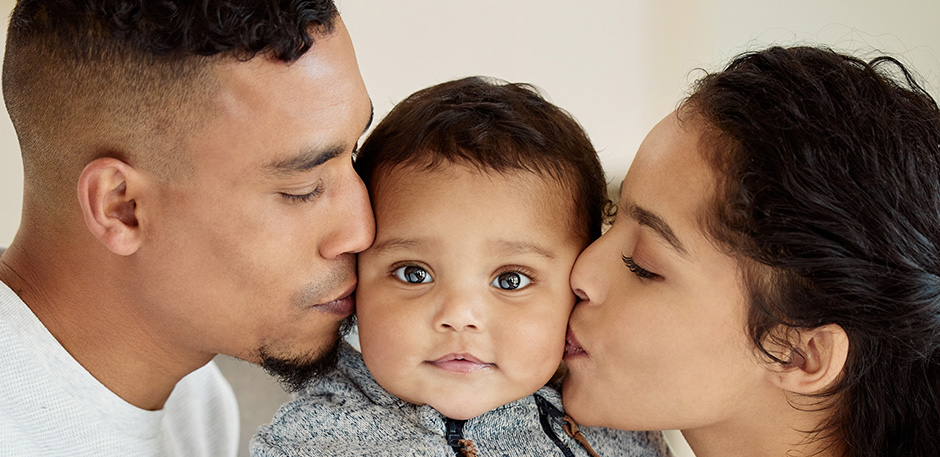For those of you with young babies, the idea of a romantic evening with your partner may seem a far distant fantasy. You may have only a dim memory of your partner’s sensuous touch or an uninterrupted conversation about your attachment to each other.
One mother recently wrote: “It has been seven months since I had my son, and my husband and I are having a hard time finding time for each other. It seems that whenever we are settling in, my son starts to cry. What can we do?”
First, it’s so important to remember that you’re not alone. Most couples struggle to nurture their relationship while they focus their best energy on nurturing their baby. Many factors can conspire to drive a wedge between you: your baby’s unpredictability, sleep deprivation, poor diet, new worries, fluctuating emotions, physical discomfort, too many things to do, and too little time. The habits and rhythms of your life before your baby arrived have been completely disrupted.
You’ve also discovered that becoming parents is a time of great joy and bonding between you as you gaze together at this amazing and beautiful being. You share the excitement of each developmental milestone: the first time she smiles, the first time he rolls over, the first solids she eats, the first time you’re sure he said “dada.”
But, in the end, taking care of yourselves IS taking care of your baby, so here are some tips for creating time to nurture your relationship:
Evaluate your priorities and examine how you schedule your time. Make a list of the things you used to enjoy together. Note those you can still do when you’re with your baby and those you want time alone for. Look for every opportunity for a bit of couple time. Those short moments can add up to a feeling of closeness if you give them your full attention.
Consider a babysitter even if it’s just for 30 minutes alone. If regular sexual intimacy is a high priority, consider new times and places. Take advantage of those offers to “take the baby for an hour or two on Saturday afternoon.” In his book After the Baby is Born, Carl Jones suggests, “[R]earrange your schedule to meet your baby’s needs. Have dinner at a different time, make love earlier or later.”
Try to keep a realistic and balanced perspective. Remember that babies will gradually need less of your constant attention and that you will adapt to your new roles. Infancy and babyhood only last a short time. One day you’ll be wondering how the time went by so quickly, so go easy on yourselves and just keep doing your best right now.
Above all, communicate with each other—honestly, frequently, and empathically. Psychotherapist Paula Hall writes, “Talk, talk, talk and more talk. It can be difficult to keep lines of communication open when you’re both busy and exhausted, but it’s the most important thing you can do to prevent minor issues from becoming major problems. Try to find at least one hour a week when you can talk through how things are going.”
If you are struggling with connection, co-parenting, or any aspect of life with a new baby, talking with a Parent Coach can offer immediate strategies to help. Learn more about Parent Coaching or contact us to see if it’s right for you.

